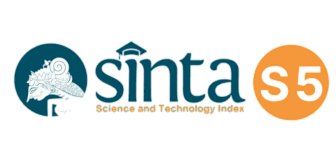Kepemimpinan politik: Peran Walikota dalam implementasi kebijakan pengentasan kemiskinan di Kota Bontang
Downloads
This article discusses about the leadership model of Bontang City Mayor for the period of 2016-2021, Neni Moerniaeni, in implementing the poverty alleviation policy in Bontang. As one of the small cities located in East Kalimantan Province, Bontang has a promising natural resource potential. However, because most of its natural resources are non-renewable, it then demands the Government of Bontang to look for other alternatives to reduce the poverty level. One of the efforts was done through policies, such as ‘Pesisir juga Kota', Kube FM, PRODUTA, Kotaku, and other policies. Other poverty alleviation effort is by attracting the interest of investors through the companies' CSR programs and Industrial development. The leadership model of the mayor also shows that her way of handling the poverty is not only through cooperating with companies, the government also have their own programs. This research will see what is the tendency of the mayor's political leadership model in implementating poverty policies. The theory that will be used is that of Herbert Feith (1962), where the leadership model is divided into two: Solidarity Maker type which prioritise the strength of the people, and the administratorist type which handle the poverty problems through administrative approach and policies implementation.
Copyright (c) 2022 Windy Widya Pratiwi

This work is licensed under a Creative Commons Attribution-NonCommercial-ShareAlike 4.0 International License.
- Copyright of this journal is possession of Editorial Board and Journal Manager, by the knowledge of the author, while the moral right of the publication belongs to the author.
- The formal legal aspect of journal publication accessibility refers to Creative Commons Atribusi-Non Commercial-Share Alike (CC BY-NC-SA), implies that publication can be used for non-commercial purposes in its original form (cannot be modified).
- Every publication (printed/electronic) are open access for educational purposes, research, and library. Other than the aims mentioned above, the editorial board is not responsible for copyright violation.












